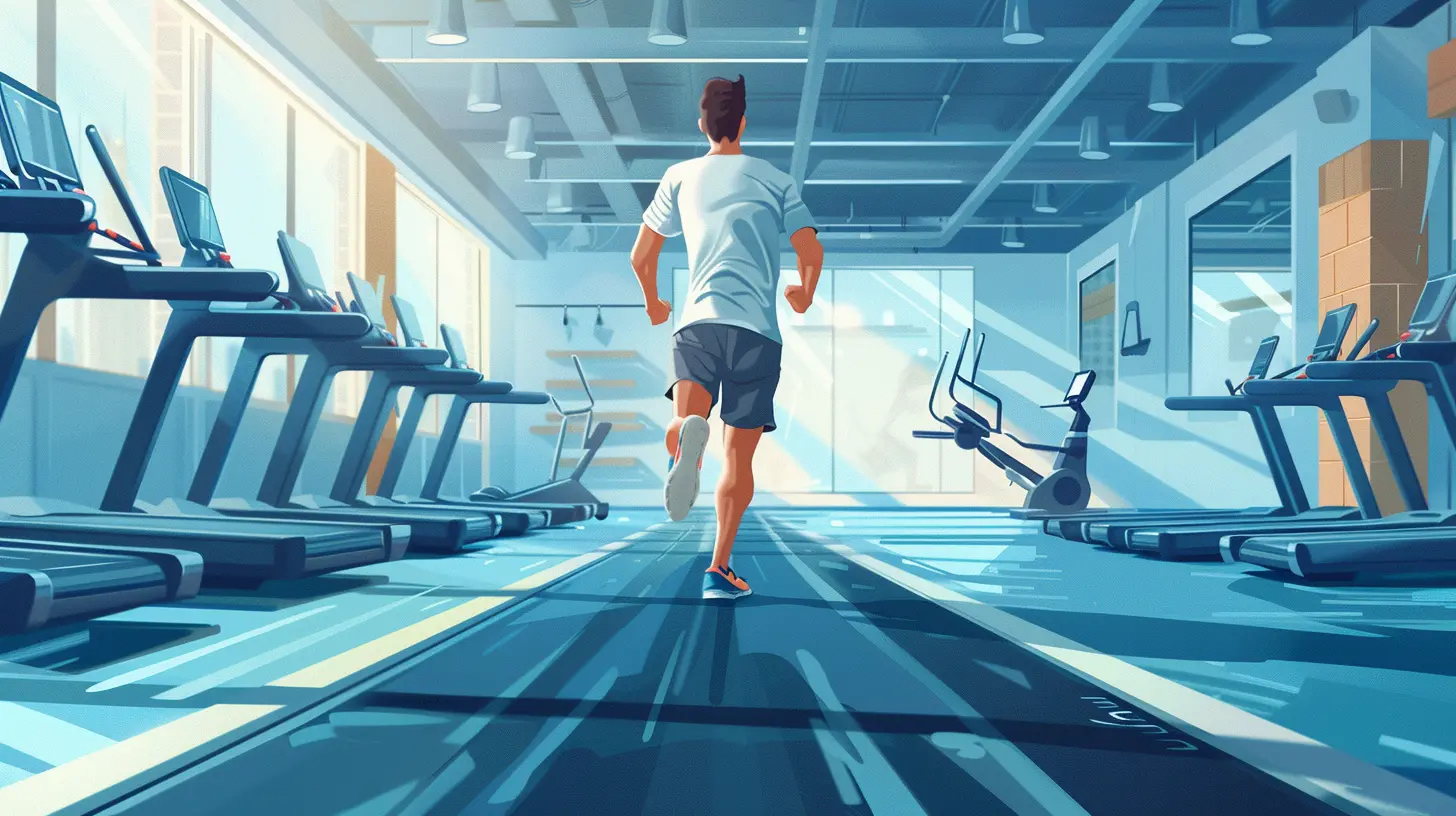The Connection Between Physical Exercise and Stress Relief
22 July 2025
Let’s be real—life can be overwhelming. Between work, family, bills, and that growing to-do list you keep ignoring, stress has a funny way of creeping into every corner of your life. And while it might be tempting to reach for a glass of wine or zone out on your phone for hours, there’s a better, healthier way to handle it: physical exercise.
Yep, sweating it out can do wonders for your mental well-being. And no, you don’t have to be a gym rat or run marathons to feel the benefits. Whether it’s a brisk walk, a dance workout in your living room, or a gentle yoga session, incorporating physical activity into your daily routine could be the secret to feeling more balanced.
Let’s dig deeper into how movement really affects your mind and why breaking a sweat might just be the best stress-buster out there.
What Happens to Your Body When You're Stressed?
Before we dive into how exercise helps, let’s first understand what stress actually does to your body.Stress isn't just "in your head." When you're stressed, your body basically goes into survival mode. It releases hormones like cortisol and adrenaline—your fight-or-flight chemicals. Your heart rate spikes. Muscles tense up. Breathing quickens. It's your body gearing up to either run from danger or stand and fight it.
But here's the catch: our bodies can’t tell the difference between a life-threatening event and an overflowing inbox. So even everyday pressure can trigger that intense physical reaction. And when it happens often or lingers too long? That’s chronic stress—hello headaches, insomnia, depression, and anxiety.
Enter Exercise: Your Body's Natural Stress Reliever
Okay, so how does exercise fit into all this?When you engage in physical activity, your body goes through a whole host of changes. You produce more endorphins, which are those feel-good brain chemicals known for easing pain and boosting mood. But besides that rush of post-workout happiness, there’s a lot more going on under the surface.
1. Reduces the Levels of Stress Hormones
Exercise helps reduce levels of cortisol and adrenaline in your system. So while stress pumps these hormones up, exercise brings them back down to earth. Think of it like hitting the “reset” button on your internal stress thermostat.2. Boosts Endorphins (Your Body’s Natural Happy Pills)
You’ve heard of the “runner’s high,” right? That’s thanks to endorphins, the neurotransmitters produced during physical activity that help reduce pain and make you feel oh-so-good. These brain chemicals are like your body’s natural antidepressants—without the side effects.3. Improves Sleep Quality
Struggling with sleep? Stress often messes with your ability to fall—and stay—asleep. Regular physical activity can help regulate your sleep cycles, making it easier to catch those much-needed Zzzs. And we all know how much better life looks after a full night of rest, don’t we?4. Distraction from Negative Thoughts
Sometimes, the best way to stop overthinking is to get out of your head and into your body. Exercise requires focus—whether it's counting reps, following choreography, or staying balanced in a yoga pose. When you’re moving, you’re not ruminating. It gives your mind a break while your body kicks into action.
The Mind-Body Connection: Why It’s Not Just Physical
Many people think of exercise as something you do to lose weight or stay in shape. But the truth is, the biggest benefits might be mental, not physical.Mindfulness in Motion
Ever notice how you feel during a long walk or a bike ride? That gentle rhythm of movement. The steady inhale and exhale. The way your thoughts start to slow down. It’s a kind of moving meditation. Some experts call it “mindfulness in motion.” You're fully present in your body, which helps ground you and ease mental tension.Confidence Boost
Accomplishing a workout—no matter how short—can help you feel more capable and in control. And that sense of achievement carries over into other parts of your life. It’s like telling yourself, “I’ve got this.”Builds Resilience
Regular exercise teaches your body (and mind) to adapt to stress. Whether it’s pushing through the final lap or holding that plank a second longer, you’re training your system to handle discomfort. And that skill translates directly to emotional resilience in everyday life.
How Much Exercise Do You Need to Feel the Effects?
Here’s the good news—you don’t have to spend hours at the gym to reap the mental benefits of exercise. Even a little movement can go a long way.The Sweet Spot
The World Health Organization recommends around 150 minutes of moderate-intensity aerobic activity per week—that’s just 30 minutes a day, five days a week. Activities like brisk walking, jogging, cycling, swimming, dancing, or even gardening count.Short Bursts Can Work Too
Pressed for time? High-intensity interval training (HIIT) or even a 10-minute walk can shift your mood and lower stress pretty quickly. The key? Consistency. Like with most things in life, the more regularly you do it, the more powerful the benefits.Best Types of Exercise for Stress Relief
Not all workouts are created equal when it comes to mental well-being. So, what kind of exercise should you be doing if stress relief is your main goal? Here are some of the best options:1. Walking or Jogging
Simple, accessible, and effective. Especially if you do it outside. Nature has its own calming effects, and adding movement to the mix is a double win.2. Yoga
This ancient practice blends movement with breath work and mindfulness, making it a triple threat against stress.3. Dancing
Put on your favorite playlist and let loose. Dancing isn’t just great cardio—it’s exhilarating, expressive, and downright fun.4. Strength Training
Lifting weights has been shown to reduce symptoms of anxiety and depression. It also improves focus and builds confidence. Plus, who doesn’t love feeling strong?5. Swimming
There’s something incredibly soothing about being in water. Swimming combines the benefits of aerobic exercise with muscle toning and meditative breathing.Making It a Habit (Even When You're Not Feeling It)
We all have those days. You're tired. Stressed. Kinda grumpy. And the last thing you want to do is work out. But here’s the thing—you don’t need to feel inspired to start moving. Often, the motivation comes after you begin.Start Small
If 30 minutes feels overwhelming, start with 5 or 10. Just lace up your shoes and step outside. You don’t need a fancy plan. Show up for yourself in small ways, and they’ll add up over time.Pair It With Something You Love
Listen to your favorite podcast during a walk, or blast music during a workout. Make physical activity something you actually look forward to.Make It Social
Workout buddies make everything more enjoyable—and they help keep you accountable. So grab a friend or join a class. Even virtual ones can offer that needed sense of community.Final Thoughts: Move Your Body, Calm Your Mind
Stress is part of life. There’s no avoiding it completely. But how we handle it? That’s where we have some control.Physical exercise is a powerful, natural remedy for stress. It not only helps regulate your hormones, improve sleep, and boost mood, but it also strengthens your mind and body to handle life’s curveballs. Whether it's a short daily walk, a weekly yoga session, or dancing in your living room like nobody's watching—every bit counts.
So next time stress starts knocking, don’t just sit there feeling overwhelmed. Get up. Move. Stretch. Breathe. Your body—and your brain—will thank you.
all images in this post were generated using AI tools
Category:
Stress ManagementAuthor:

Eliana Burton
Discussion
rate this article
1 comments
Maddox Wolf
This article effectively highlights the scientific link between physical exercise and stress relief, emphasizing how regular activity can significantly enhance mental well-being and reduce anxiety levels.
August 17, 2025 at 2:53 PM

Eliana Burton
Thank you for your insightful comment! I'm glad you found the article highlights the important link between exercise and mental well-being.


